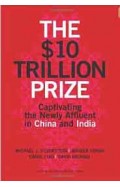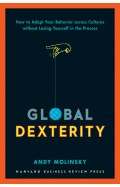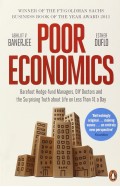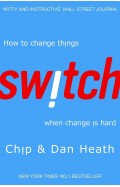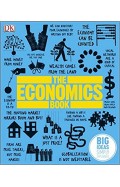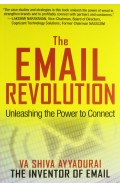More From Less
By: Andrew Mcafee
-
Rs 2,205.75
- Rs 2,595.00
- 15%
You save Rs 389.25.
Due to constant currency fluctuation, prices are subject to change with or without notice.
This turn of events invalidates the predictions of overpopulation alarmists and those who argue we need to drastically reduce our conception of how much is enough. What has made this turnabout possible? One thing primarily: the collaboration between technology and capitalism.
Capitalism’s quest for higher profits is a quest for lower costs; materials and resources are expensive, and technological progress allows companies to use fewer of them even as they grow their markets. Modern smartphones take the place of cameras, GPS units, landline telephones, answering machines, tape recorders and alarm clocks. Precision agriculture lets farmers harvest larger crops while using less water and fertiliser. Passenger cars get lighter, which makes them cheaper to produce and more fuel-efficient. This means that, even though there’ll be more people in the future, and they’ll be wealthier and consume more, they’ll do so while using fewer natural resources. For the first time ever, and for all time to come, humans will live more prosperous lives while treading more lightly on the Earth.
The future is not all bright, cautions McAfee. He warns of issues that still haven’t been fully solved. (For example, our oceans are still vulnerable to overfishing; global warming is still running largely unchecked; and even as 'dematerialisation' - the reduced need for raw materials - improves our global situation, power and resources are getting more concentrated. That creates an even larger division between the haves and the have nots.)
This turn of events invalidates the predictions of overpopulation alarmists and those who argue we need to drastically reduce our conception of how much is enough. What has made this turnabout possible? One thing primarily: the collaboration between technology and capitalism.
Capitalism’s quest for higher profits is a quest for lower costs; materials and resources are expensive, and technological progress allows companies to use fewer of them even as they grow their markets. Modern smartphones take the place of cameras, GPS units, landline telephones, answering machines, tape recorders and alarm clocks. Precision agriculture lets farmers harvest larger crops while using less water and fertiliser. Passenger cars get lighter, which makes them cheaper to produce and more fuel-efficient. This means that, even though there’ll be more people in the future, and they’ll be wealthier and consume more, they’ll do so while using fewer natural resources. For the first time ever, and for all time to come, humans will live more prosperous lives while treading more lightly on the Earth.
The future is not all bright, cautions McAfee. He warns of issues that still haven’t been fully solved. (For example, our oceans are still vulnerable to overfishing; global warming is still running largely unchecked; and even as 'dematerialisation' - the reduced need for raw materials - improves our global situation, power and resources are getting more concentrated. That creates an even larger division between the haves and the have nots.)
Enterprise 20: New Collaborative Tools for Your Organizations Toughest Challenges
By: Andrew Mcafee
Rs 1,780.75 Rs 2,095.00 Ex Tax :Rs 1,780.75
The Geek Way - The Radical Mindset That Drives Extraordinary Results
By: Andrew Mcafee
Rs 3,865.50 Rs 4,295.00 Ex Tax :Rs 3,865.50
The Geek Way - The Radical Mindset That Drives Extraordinary Results
By: Andrew Mcafee
Rs 2,375.75 Rs 2,795.00 Ex Tax :Rs 2,375.75
Zubin Mehta: A Musical Journey (An Authorized Biography)
By: VOID - Bakhtiar K. Dadabhoy
Rs 892.50 Rs 1,050.00 Ex Tax :Rs 892.50
The 10 Trillion Prize Captivating thely Affluent in China and India
By: Michael J. Silverstein
Rs 1,865.75 Rs 2,195.00 Ex Tax :Rs 1,865.75
Global Dexterity: How to Adapt Your Behavior Across Cultures without Losing Yourself in the Process
By: Andy Molinsky
Rs 2,065.50 Rs 2,295.00 Ex Tax :Rs 2,065.50
Poor Economics: The Surprising Truth about Life on Less Than $1 a Day
By: Abhijit Banerjee
Rs 2,515.50 Rs 2,795.00 Ex Tax :Rs 2,515.50
Switch: How to change things when change is hard - (PB)
By: Dan Heath
Rs 1,255.50 Rs 1,395.00 Ex Tax :Rs 1,255.50
The Great Degeneration: How Institutions Decay and Economies Die
By: Niall Ferguson
Rs 2,035.75 Rs 2,395.00 Ex Tax :Rs 2,035.75
Email Revolution : Unleashing The Power To Connect
By: V. A. Shiva Ayyadurai
Rs 977.50 Rs 1,150.00 Ex Tax :Rs 977.50
Money Mania Booms Panics and Busts from Ancient Rome to the Great Meltdown
By: Bob Swarup
Rs 2,252.50 Rs 2,650.00 Ex Tax :Rs 2,252.50
No similar books from this author available at the moment.
No recently viewed books available at the moment.
Zubin Mehta: A Musical Journey (An Authorized Biography)
By: VOID - Bakhtiar K. Dadabhoy
Rs 892.50 Rs 1,050.00 Ex Tax :Rs 892.50
Enterprise 20: New Collaborative Tools for Your Organizations Toughest Challenges
By: Andrew Mcafee
Rs 1,780.75 Rs 2,095.00 Ex Tax :Rs 1,780.75
The Geek Way - The Radical Mindset That Drives Extraordinary Results
By: Andrew Mcafee
Rs 3,865.50 Rs 4,295.00 Ex Tax :Rs 3,865.50
The Geek Way - The Radical Mindset That Drives Extraordinary Results
By: Andrew Mcafee
Rs 2,375.75 Rs 2,795.00 Ex Tax :Rs 2,375.75












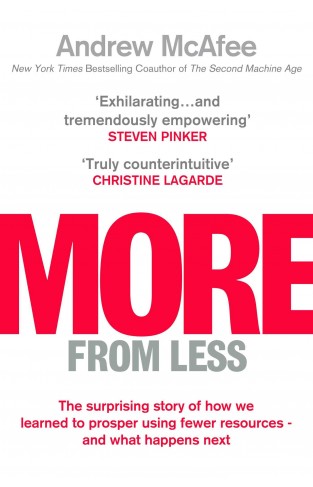

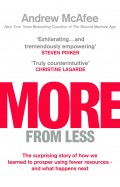
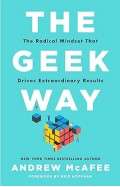

-120x187.jpg?q6)






